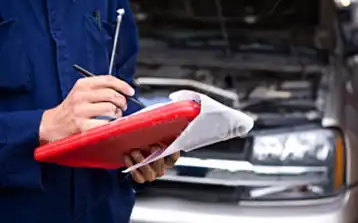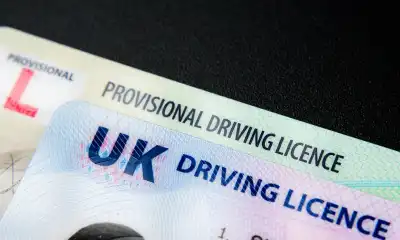
It is the fear of a hefty repair bill that worries most drivers and whilst an MOT test is required by law to ensure a vehicle is in a roadworthy condition, a survey by the Society of Motor Manufacturers and Traders (SMMT) found that a third of motorists have admitted to driving a vehicle without a valid MOT certificate risking a £1000 fine, penalty points and loss of insurance cover.
The SMMT also found that around 1.5 million vehicles fail their MOT due to minor issues such as too little tyre tread, empty windscreen washer fluid and faulty bulbs; highlighting the fact that many failures could be avoided with a few simple checks before taking a vehicle to be tested.
For tips on how to ensure your vehicle passes its MOT first time, follow our free guide below.
1. Headlights and indicators
Nearly a third of cars fail due to faulty lighting. Check your lights, inside and outside before your MOT test and if any need replacing always follow the manufacturers guide.
2. Brake lights
Most vehicles have two brake lights integrated into other rear facing lights and a supplementary break strip light. Ask a friend or family member to stand behind your car when pressing the brake pedal to check they work.
3. Number plate
Check your vehicles number plates are legible. Ensure the font and spacing are correct and that it complies with British standards.
4. Wheels and tyres
Tyre problems are a major factor in MOT fails. The legal minimum tread depth is 1.6mm, although we would recommend you fit new tyres well before then. Check that all tyre pressures are correct and that the tyres are not damaged.
5. Seats and seatbelts
Check your vehicles seats to ensure they don’t move around when driving. Seatbelts should not be frayed and in good working order, quickly tug on all seatbelts to make sure they react accordingly.
6. Windscreen and wipers
Check your windscreen carefully before an MOT, any chips or cracks larger than 1 cm could cause your vehicle to fail. Ensure your wipers clean the windscreen well enough to give you a clear view of the road.
7. Windscreen washer fluid
Make sure you check your windscreen washer fluid is topped up sufficiently as some garages will charge extra to top it up. An empty windscreen washer fluid container is one of the biggest causes of MOT fails.
8. Fuel and engine oil
Ensure your vehicle has adequate levels of oil. Oil is a vital component of all engines and lack of it can seriously damage your vehicle. Fuel is required to test emissions and an MOT centre is under no obligation to put fuel in your vehicle to complete the MOT.
9. Horn
Press your horn firmly and make sure it sounds well. Your horn should be clearly labelled and in an easily accessible place.
10. Check previous MOT certificate comments
Read your previous MOT test comments, as they may advise that something like a tyre needs changing shortly. If you don’t understand, ask the mechanic that conducted your test.
Why not use our handy MOT reminders to automatically get alerted when your MOT is due by simply adding your registration number.




